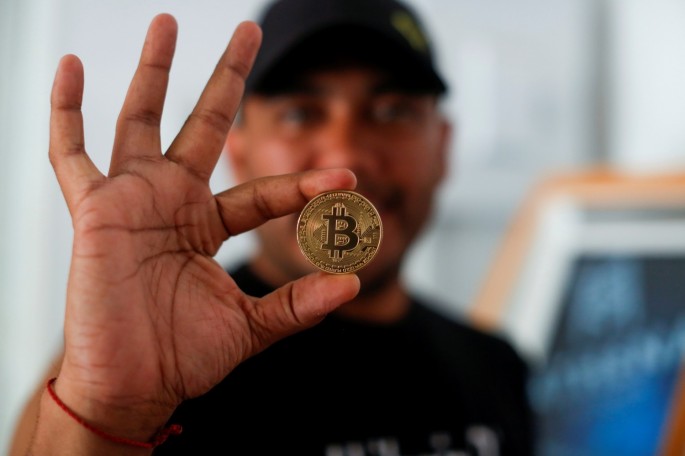The El Salvadoran beach town of El Zonte is visibly poor, with dirt roads and a faulty drainage system. But in one way, it's ahead of the rest of the country: It has bitcoin.
The tropical surfing spot's basic infrastructure offers a glimpse of the potential pitfalls to popularizing bitcoin nationally for payments and savings, after Congress last Wednesday adopted the cryptocurrency as legal tender, a world first.
Take Zulma Rivas. The 38-year-old mother of three started accepting bitcoin payments last year for the bags of cut fruit she sells from a tray to tourists, part of an experiment called Bitcoin Beach aimed at making the town one of the world's first bitcoin economies.
President Nayib Bukele cited Bitcoin Beach as inspiration for his push to adopt the cryptocurrency nationally. The town's use of a platform called Lightning Network to enable smaller transactions has helped overcome some of the technical and practical obstacles to using bitcoin as a currency, Bitcoin Beach's founders say, which could be useful on a larger scale.
But for Rivas, cash is king. She rarely uses bitcoin, she says, because like many in the town, her battered smartphone struggles with the payments app. When Reuters visited last week, the device was broken. Anyway, she often runs out of data on her prepaid contract.
Then there is the internet connection, notoriously patchy in rural places like El Zonte, which is 49 km (30 mi) southwest of San Salvador, the capital.
A 2020 study by Microsoft and the Interamerican Development Bank concluded that El Salvador had the second lowest internet penetration of 20 countries in Latin America and the Caribbean. At 45%, connectivity was only lower in neighboring Honduras. In rural areas barely one in 10 people have internet access.
Oscar Picardo, director of science, technology and innovation at the University of Francisco Gavidia, said he was excited about the potential of bitcoin to give poor Salvadorans an alternative to banks, but that the experiment in El Zonte was too limited to give him confidence it could work nationally.
"It's like a mirage," he said. "The digital divide is enormous, access to the internet is limited for many poor families and there are other priorities and needs," Picardo said.
Education and training would be needed to ensure people were not at risk of fraud when handling the new currency, he said.
Dania Gonzalez, who heads the finance committee in El Salvador's Congress, acknowledged during debate about making bitcoin legal tender that there were gaps in internet service, but blamed previous governments.
"This government is trying reduce the divide, delivering computers with internet access to communities in our country's provinces and training teachers," she said.
BITCOIN FOR SHAVED ICE
El Zonte's economy depends on the flow of tourists, especially those who come to surf.
Businesses are small, some housed in palm huts. Water doesn't always flow. The U.S. government is helping construct a sewer system and a wastewater treatment plant.
Despite the barebones infrastructure, three young Salvadorans in 2019 began the Bitcoin Beach project backed by Californian Michael Peterson, after an "anonymous donation" of bitcoin.
The Salvadorans say the project has changed the lives of El Zonte residents by allowing them to save, invest and obtain profits in a town with no nearby bank branches. During the coronavirus pandemic, releases of bitcoin into the local economy helped people tide over hard times without work.
Peterson last year told the Go Full Crypto podcast that 90% of families in the town of 3,000 people had made a transaction using bitcoin, with a boost from the pandemic. He said young people in town were more comfortable with it than their parents.
"You showed that this is not just for rich people. I mean, this is for everyone," Bukele said on a Twitter Spaces chat hosted by bitcoin advocate Nic Carter and attended by industry players including representatives of Bitcoin Beach last Tuesday, as the law was being debated in Congress.
"You are the pioneers here," he said.
Bukele worked on bitcoin adoption with American Jack Mallers, CEO of Zap, which has created an app called Strike to facilitate cash transfers by Salvadorans in the United States to people at home.
Mallers' representative in El Salvador, Renato Salazar, who is also involved in Bitcoin Beach, said the project in El Zonte, which has helped fund training and workshops, was about education and empowerment, not making people rich.
"The shaved iced seller can now get paid via bitcoin," Salazar told Salvadoran television last week.
Handing out bags of pineapple, watermelon, mango and cucumber to customers in a beach hut, Rivas insisted many of her fellow vendors still prefer U.S. dollars, the poor Central American country's currency since 2001.
Blanca Ponce, 30, making tortillas by the beach, said she does not accept bitcoin because she does not make enough money for a smartphone or internet data plan. She also fears the financial risk.
"I find it very difficult to take the little that I earn, invest it in something and not know if it will grow," Ponce said.



























